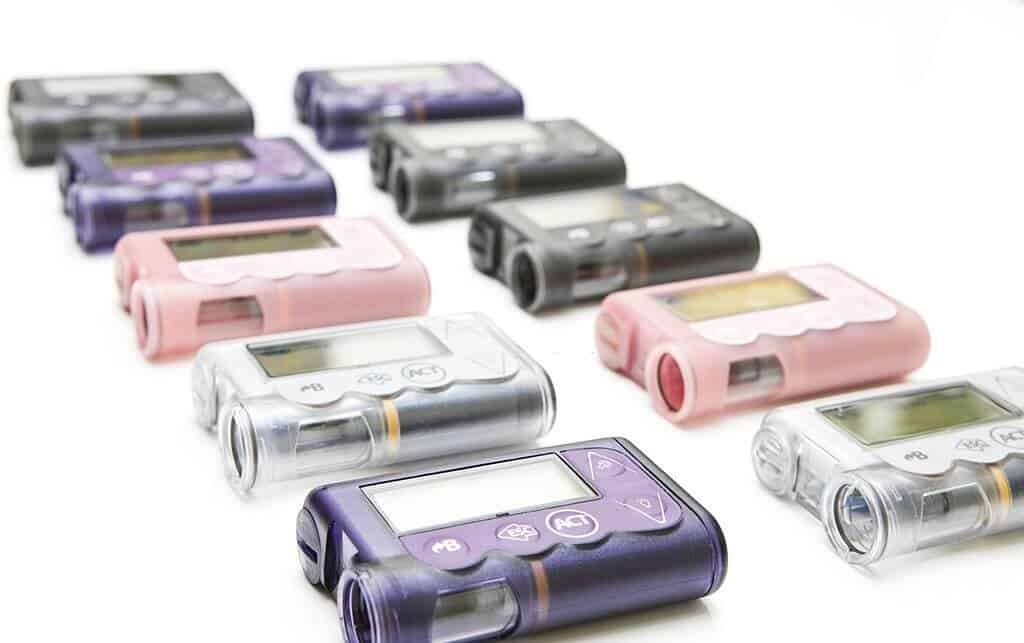An Expanded Recall By Medtronic Involves More Than 4,63,000 Insulin Pumps
Nikki Attkisson | Last Updated : October 6, 2021The MiniMed 600 series insulin pumps of Medtronic have been recalled to prevent severe injuries and health problems. Due to the potential for incorrect insulin dosing, the recall has been categorized as a Class I recall by the US Food and Drug Administration, which is the most serious type since the use of these pumps could cause significant harm or death.
Pumps deliver insulin to people who have type 1 diabetes, as a way of managing the disease.
An Expanded Recall By Medtronic Involves More Than 4,63,000 Insulin Pumps
The recall for two models was first announced in November 2019. The models are: Model 630G, which has a range of use for adults 16 and older and was available between September 2016 and February 2020, and Model 670G, which was released from May 2015 to December 2020 and has a range of use for children 7 and older.

A recall update published by Medtronic on Oct. 5 said those MiniMed 600 series insulin pumps with a clear retainer ring will now be replaced for free by ones that have the new black retainer rings. No matter what the warranty status of the pump may be, a replacement insulin pump will be provided regardless of whether the clear retainer ring is damaged.
A previous Medtronic alert informed customers that their MiniMed 630G and 670G insulin pumps had missing or broken clear retainer rings. In the reservoir compartment of a pump, the retainer ring secures the insulin cartridge. A cartridge that is not locked firmly into place could result in the cartridge delivering less insulin than intended, resulting in low blood sugar (hypoglycemia) or high blood sugar (hyperglycemia).
Extreme hyperglycemia or hypoglycemia may be life-threatening or lead directly to death. Medtronic reports that there have been incidents of serious injuries and deaths among patients who used MiniMed 600 series insulin pumps, but those incidents may not have directly been caused by the damaged clear retainer rings that prompted the recall, the company says. The following are Medtronic’s updated recommendations for customers:
- You need to determine if your retainer ring is clear. By going to the Medtronic website and inputting your serial number, you can find the serial number of your pump.
- Make sure the retainer ring is in good condition. Medtronic recommends stopping using the pump and contacting the company for a replacement if the ring is loose, damaged, or missing, or if the reservoir does not lock into the pump.
- Follow your doctor’s guidance if you decide to stop using your pump and start administering insulin manually. Taking the reservoir out of the pump when it is connected risks making yourself more insulin-dependent.
- You can continue to use the pump until you receive a replacement pump as long as the reservoir is locked in place correctly and the retainer ring is not damaged or detached. You should follow the instructions provided by Medtronic for replacing the pump.
- When you replace the insulin reservoir or when the pump is dropped or bumped, check for damage to the pump and retention ring.
More on Type 1:
People with diabetes and their loved ones are urged to become as informed about the latest treatments and approaches as possible, as well as making healthy lifestyle choices. Together with good communication with your team of experts, you can better react to changing conditions and feel in control.
Almost any device that measures blood sugar, from continuous glucose monitors to insulin pumps, is now more accessible and less invasive. A connected insulin delivery device may simplify your routine. Smart insulin pens are reusable injector pens that do not require batteries and come with an intuitive smartphone application for people with diabetes. Smart Dose calculates and tracks dosages, provides alerts, reports, and reminders. Insulin pumps can take the form of a device that adds more features to your current insulin pen or a reusable system that uses prefilled cartridges in place of vials or disposables.
With over 15 years as a practicing journalist, Nikki Attkisson found herself at Powdersville Post now after working at several other publications. She is an award-winning journalist with an entrepreneurial spirit and worked as a journalist covering technology, innovation, environmental issues, politics, health etc. Nikki Attkisson has also worked on product development, content strategy, and editorial management for numerous media companies. She began her career at local news stations and worked as a reporter in national newspapers.
